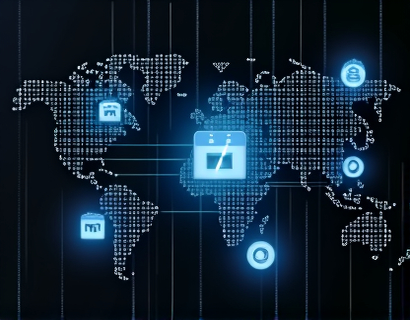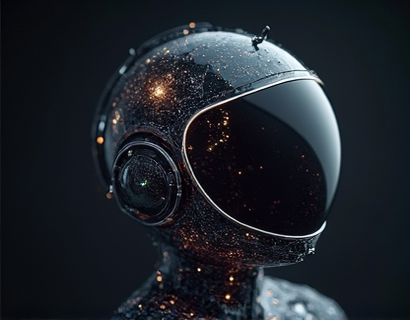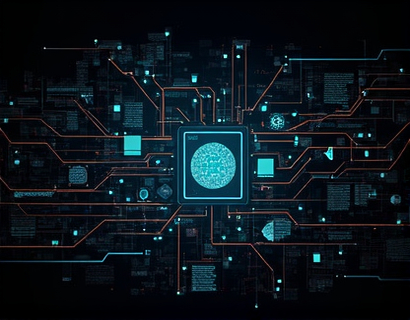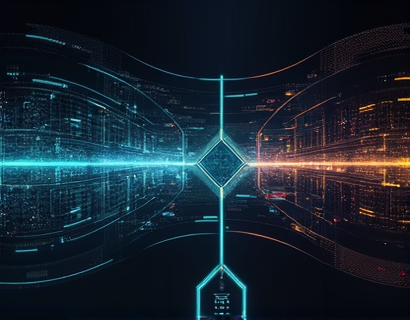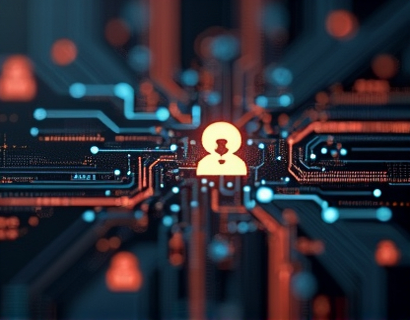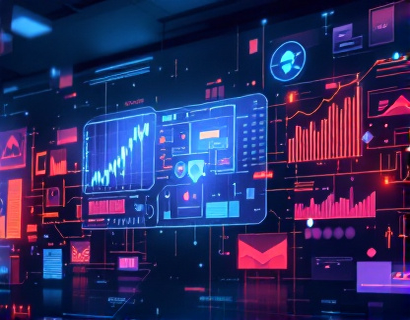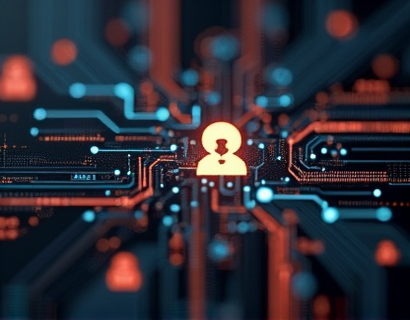Crypto AI Solutions: Revolutionizing Digital Experiences with Intelligent App Ecosystems
The intersection of cryptocurrency and artificial intelligence (AI) is giving rise to a new era of digital interactions, transforming app ecosystems and redefining user experiences. This fusion is not just a technological curiosity but a powerful force driving innovation and growth across various industries. As we delve into this topic, we will explore how the integration of blockchain technology and AI is creating intelligent app ecosystems that are more secure, efficient, and user-centric.
Understanding the Basics: Cryptocurrency and AI
To grasp the significance of crypto AI solutions, it's essential to first understand the fundamental concepts of cryptocurrency and AI. Cryptocurrency, such as Bitcoin and Ethereum, operates on blockchain technology, a decentralized ledger that ensures transparency, security, and immutability. This technology underpins the creation of digital assets and facilitates peer-to-peer transactions without the need for intermediaries.
Artificial intelligence, on the other hand, involves the simulation of human intelligence processes by machines, particularly computer systems. These processes include learning (the acquisition of information and rules for using it), reasoning (using rules to reach approximate or definite conclusions), and self-correction. AI can operate autonomously or be integrated into existing systems to enhance their functionality.
The Synergy of Crypto and AI
The combination of cryptocurrency and AI creates a synergy that amplifies the strengths of both technologies. Cryptocurrency provides a secure and decentralized platform for AI applications, while AI enhances the efficiency, personalization, and security of blockchain-based systems. This synergy is particularly evident in the development of intelligent app ecosystems, which leverage these technologies to offer superior user experiences.
Enhanced Security through Crypto AI
One of the most significant benefits of integrating AI with cryptocurrency is the enhancement of security. AI algorithms can detect and mitigate potential threats in real-time, identifying patterns that indicate fraudulent activities or security breaches. For instance, machine learning models can analyze transaction data to spot anomalies, thereby preventing unauthorized access and ensuring the integrity of the blockchain network.
Smart contracts, self-executing contracts with the terms directly written into code, can also benefit from AI. AI can optimize smart contracts by predicting and mitigating risks, automating complex legal and financial processes, and ensuring compliance with regulatory standards. This not only reduces the risk of errors but also streamlines operations, making the entire ecosystem more robust and trustworthy.
Personalized User Experiences
AI-driven intelligent app ecosystems can offer highly personalized user experiences. By analyzing user behavior, preferences, and interactions, AI can tailor content, recommendations, and services to individual needs. This personalization extends to the user interface, making applications more intuitive and user-friendly.
For example, in the realm of finance, AI can analyze a user's spending habits and financial goals to provide customized investment advice and portfolio management. In healthcare, AI can process vast amounts of medical data to offer personalized treatment plans and health monitoring solutions. These applications not only enhance user satisfaction but also drive engagement and loyalty.
Efficient Operations and Scalability
The integration of AI in app ecosystems also leads to more efficient operations and better scalability. AI can optimize resource allocation, reduce latency, and improve the overall performance of blockchain networks. For instance, AI algorithms can manage network congestion by dynamically adjusting parameters such as block size and transaction fees, ensuring smooth and fast transactions even during peak usage times.
Moreover, AI can automate routine tasks, freeing up developers to focus on more complex and innovative projects. This automation not only reduces operational costs but also accelerates the development and deployment of new features and services, enabling app ecosystems to scale more effectively.
Case Studies: Real-World Applications
To better understand the practical implications of crypto AI solutions, let's explore some real-world applications across different industries.
Finance and Banking
In the finance sector, the combination of cryptocurrency and AI has led to the development of advanced trading platforms and risk management systems. For instance, AI-powered trading bots can analyze market data and execute trades at optimal times, maximizing returns and minimizing risks. These bots can also monitor multiple cryptocurrencies and traditional assets, providing a comprehensive view of the market.
Additionally, AI-driven KYC (Know Your Customer) and AML (Anti-Money Laundering) solutions have revolutionized compliance processes. By using machine learning to analyze user data and transaction patterns, these solutions can quickly identify and flag suspicious activities, ensuring adherence to regulatory requirements.
Healthcare
In healthcare, AI integrated with cryptocurrency can enhance patient care and data management. For example, AI can analyze medical records and genetic data to predict disease outcomes and recommend personalized treatment plans. Blockchain technology ensures the secure and privacy-preserving storage and sharing of these sensitive data, giving patients greater control over their health information.
Telemedicine platforms can also benefit from AI-driven chatbots and virtual assistants, which can handle initial patient inquiries, schedule appointments, and provide basic medical advice. These AI tools can operate on a blockchain-based infrastructure, ensuring data integrity and patient privacy.
Supply Chain and Logistics
The supply chain and logistics industry stands to gain significantly from the integration of cryptocurrency and AI. Blockchain can provide a transparent and immutable record of transactions, from raw materials to the final product, ensuring traceability and reducing fraud. AI can optimize supply chain operations by predicting demand, managing inventory, and streamlining transportation routes.
Smart contracts can automate payment processes based on predefined conditions, such as delivery confirmation or quality checks. This not only speeds up transactions but also reduces the need for intermediaries, lowering costs and increasing efficiency.
Challenges and Considerations
While the potential of crypto AI solutions is vast, there are several challenges and considerations that need to be addressed to fully realize their benefits.
Regulatory Hurdles
The regulatory landscape for cryptocurrency and AI is still evolving, and navigating these regulations can be complex. Different jurisdictions have varying rules and requirements, which can pose challenges for developers and businesses looking to deploy crypto AI solutions globally. Compliance with data protection laws, such as GDPR, is crucial to ensure user trust and avoid legal issues.
Technical Complexity
The technical complexity of integrating AI with blockchain technology is another significant challenge. Developing robust and scalable systems requires expertise in both domains, and the rapid pace of technological advancements means that solutions must be continuously updated and improved. This can be resource-intensive and may require significant investment in research and development.
User Adoption
User adoption is a critical factor in the success of crypto AI solutions. While there is growing interest in cryptocurrency and AI, many users are still unfamiliar with these technologies. Educating the public and creating user-friendly interfaces are essential to drive adoption and ensure that the benefits of these solutions are widely realized.
Future Prospects
The future of crypto AI solutions looks promising, with ongoing advancements poised to further enhance the capabilities of intelligent app ecosystems. Here are some key trends and developments to watch:
Decentralized Finance (DeFi)
DeFi platforms are leveraging AI to create more sophisticated financial products and services. AI-driven lending and borrowing platforms can assess creditworthiness more accurately, offering personalized loan terms and interest rates. AI can also optimize portfolio management and risk assessment, making DeFi more accessible and attractive to a broader audience.
Internet of Things (IoT) Integration
The integration of AI with IoT and cryptocurrency can lead to smarter and more interconnected devices. For example, smart home devices can use AI to manage energy consumption and security, with transactions and data storage handled securely on a blockchain network. This integration can create seamless and efficient living environments.
Enhanced Data Analytics
As AI algorithms become more advanced, their ability to process and analyze large datasets will continue to improve. This will enable more insightful analytics and better decision-making across various industries. Cryptocurrency can provide a secure and decentralized way to store and share these analytics, ensuring data privacy and integrity.
In conclusion, the fusion of cryptocurrency and AI is revolutionizing app ecosystems, offering enhanced security, personalized user experiences, and efficient operations. While there are challenges to overcome, the potential benefits are significant, and ongoing advancements promise to further transform the digital landscape. As this field continues to evolve, staying informed and adaptable will be key to harnessing the full potential of crypto AI solutions.














